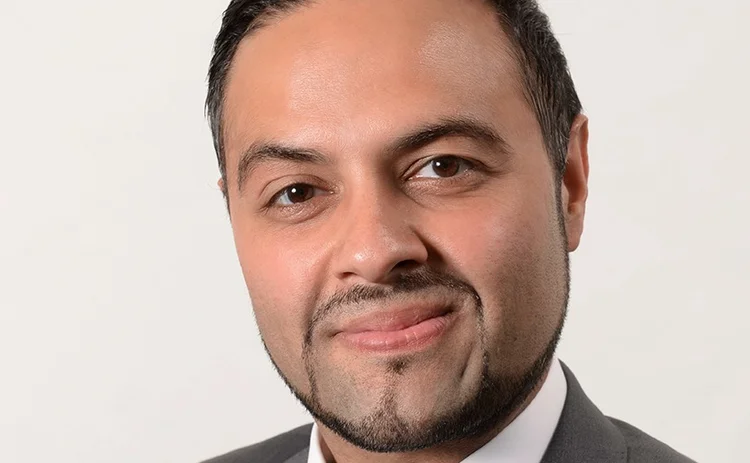Algomi to Power New Euronext Pan-European Bond MTF
New 10-year partnership to develop pan-European MTF for bond trading, powered by Algomi technology and operated by Euronext.

The electronic bond trading space has so far been something of a conundrum: Everyone wants to be involved but few have overcome the transition from voice-based trades, while many still prefer to use the old, more human, approach to the newer electronic platforms.
Global bond trading values stand around the $87 trillion mark, although recent political events have taken a serious toll; $1 trillion was wiped off the market by November 14, according to Bank of America, in reaction to Donald Trump's presidential victory.
New venues have proliferated in this space as collaborative efforts come to the fore with new ideas. Exchange operator Euronext has announced a new joint-partnership with fixed-income vendor Algomi to develop and launch a new MTF. Its aim is to become a centralized marketplace for pan-European corporate bond trading and Euronext has bankrolled the project at an investment of $2.3 million, aiming to launch next year.
London-based Algomi has made it a specific mission to tackle the historic difficulties that have plagued fixed-income trading and related liquidity due to a lack of information availability, rolling out its flagship Honeycomb network, and in August this year, making its information-matching platform Synchronicity available on a software-as-a-service (SaaS) basis.
Usman Khan, CTO at Algomi, tells WatersTechnology that while the vendor will be providing the platform's technology, it does not mean a fundamental change to the business.
"Algomi is not becoming an execution venue and we never will be; we are not becoming regulated or taking positions of risk or anything similar," he says. "Euronext is now expanding into this type of bond matching and the partnership with Aglomi is to set up an interdealer network that connects banks so they can find bond matching opportunities between each other."
Sole Provider
As part of the 10-year agreement, Algomi will deliver the technology upon which the venue will operate, based on a similar project with SIX Swiss Exchange, which was undertaken early last year.
Algomi will supply an internally developed exchange-grade bond-matching solution to provide the functionality required for algorithmic smart matching to create an auction between dealers. The idea is that if a bank is unable to match an order coming in from a buy-side trader, it then gets sent to the interdealer exchange where a collaborative approach can find the other side of the deal.
Khan says the vendor will seek to leverage its existing relationships with both buy- and sell-side organizations. It currently counts over 200 buy-side users and 15 global banking institutions among its client base.
"Any bank that uses Synchronicity will automatically, once they have a contractual agreement in place with the Euronext MTF, be able to access that exchange very quickly," Khan says. "It's out of the box. We have already connected the exchange-grade technology with our Synchronicity banking technology, which provides enhanced time-to-market for these dealers in a way that no one else can right now."
Once the platform goes live next year, Khan says Algomi's role will shift to focus on maintaining the technology involved, implementing any upgrades and scaling alongside increases in volumes. Those upgrades will encompass version 2 of Synchronicity in the first and second quarters of 2017, which will be released in HTML5 and, according to Khan, models exchange behavior in a more efficient manner than the current iteration.
The last major European exchange to tackle the corporate bond market was Deutsche Börse in January 2014, when it took a stake in newly founded bond trading platform Bondcube, which ultimately struggled to gain traction and folded three months after launch in July 2015
"There are definitely people out there who are trying to do similar things, some of whom are looking at building multi-dealer or interdealer exchanges, but I think the use-cases are different," Khan says. "We have approached our use-cases off the back of how banking clients are using our platform. We realized that sometimes banks are unable to get trades done based on the inquiries they receive from the client because they can't find the other side, whereas multiple banks working together can often find it."
It is too early to say whether or not the joint venture between Euronext and Algomi will succeed, but at first glance it looks like tough ask in a marketplace that has become saturated with new entrants and established players alike.
The differentiating factor for the Euronext and Algomi venture will be the technology involved—a specific focus on improved information matching and collaboration, alongside an established buy-side client base sets the project in good stead prior to its entry into the bond arena.
The Bottom Line
-
Euronext and Algomi have agreed to a multi-year partnership to develop and launch a new pan-European bond multilateral trading facility (MTF), with technology provided by Algomi, which seeks to increase the availability of pre-trade information through a collaborative approach between banking users.
Only users who have a paid subscription or are part of a corporate subscription are able to print or copy content.
To access these options, along with all other subscription benefits, please contact info@waterstechnology.com or view our subscription options here: https://subscriptions.waterstechnology.com/subscribe
You are currently unable to print this content. Please contact info@waterstechnology.com to find out more.
You are currently unable to copy this content. Please contact info@waterstechnology.com to find out more.
Copyright Infopro Digital Limited. All rights reserved.
As outlined in our terms and conditions, https://www.infopro-digital.com/terms-and-conditions/subscriptions/ (point 2.4), printing is limited to a single copy.
If you would like to purchase additional rights please email info@waterstechnology.com
Copyright Infopro Digital Limited. All rights reserved.
You may share this content using our article tools. As outlined in our terms and conditions, https://www.infopro-digital.com/terms-and-conditions/subscriptions/ (clause 2.4), an Authorised User may only make one copy of the materials for their own personal use. You must also comply with the restrictions in clause 2.5.
If you would like to purchase additional rights please email info@waterstechnology.com
More on Trading Tech
Bloomberg Terminal’s agentic play shows rapid change in trading tech
Waters Wrap: The data giant’s conversational AI interface might seem novel, but others say having one is becoming a bare minimum in the world of trading technology.
Esma supervision proposals ensnare Bloomberg and Tradeweb
Derivatives and bonds venues would become subject to centralized supervision if the proposed reforms go through.
AllianceBernstein enlists SimCorp, BMLL and Features Analytics team up, and more
The Waters Cooler: Mondrian chooses FundGuard to tool up, prediction markets entice options traders, and Synechron and Cognition announce an AI engineering agreement in this week’s news roundup.
Ram AI’s quest to build an agentic multi-strat
The Swiss fund already runs an artificial intelligence model factory and a team of agentic credit analysts.
Fidelity expands open-source ambitions as attitudes and key players shift
Waters Wrap: Fidelity Investments is deepening its partnership with Finos, which Anthony says hints at wider changes in the world of tech development.
Market-makers seek answers about CME’s cloud move
Silence on the data center’s changes has fueled speculation over how new matching engines will handle orders.
SGX to modernize data lake
The work is part of the exchange’s efforts to enhance its securities trading platform.
Digital employees have BNY talking a new language
Julie Gerdeman, head of BNY’s data and analytics team, explains how the bank’s new operating model allows for quicker AI experimentation and development.








